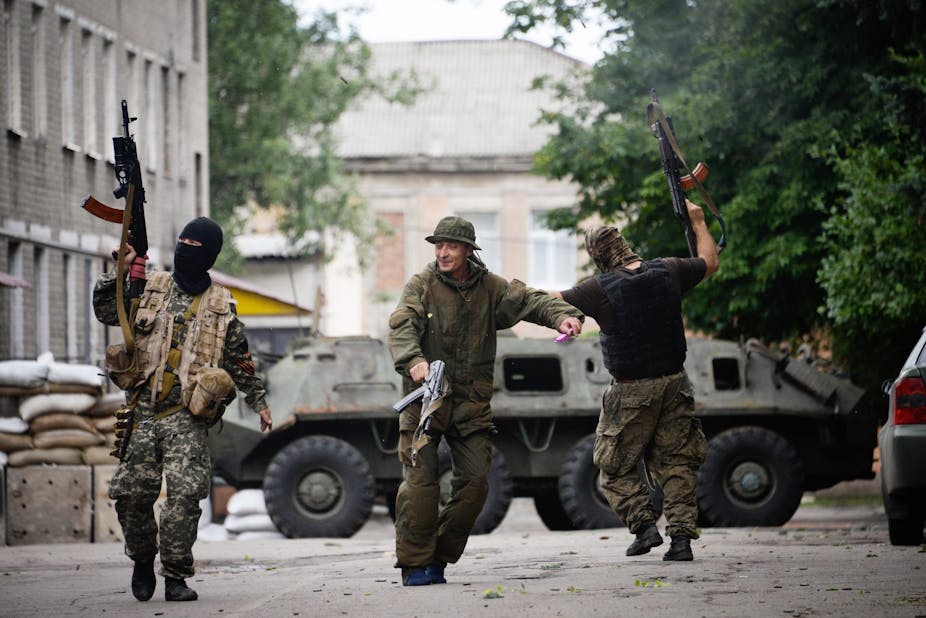So far, the ongoing discussions about radicalisation of extremists both at home and abroad have tended to emphasise its sociological aspects. It has focused on concepts such as the religion and social environments of individuals.
However, psychological accounts of extremist activity are infrequent, and it is often forgotten that only a few of those who hold strong ideological, political and religious views get involved in violent acts. Personal dispositions, feelings and beliefs may play a decisive role in explaining why people become radicalised.
Nastiness, grudge and excuse
Both conceptual analyses and empirical psychological studies that I have undertaken in the past have shown there are three main ingredients of militant extremist mindset.
The first of these ingredients is nastiness, as captured by strong endorsement of statements approving of violent acts, such as “killing is justified when it is an act of revenge”, or “we should respond to terror with terror”.
The second is grudge, which can take two forms. One is a direct reference to the “west”, shown in statements such as “terrorism in the form of unfair torture and execution without trial is carried out daily by many western countries” and “the west is degraded by its lack of dignified values, its AIDS epidemic, and its alcohol and drug addiction”.
Grudge’s other manifestation is a more generalised belief in the vile world: “evil has been re-incarnated in the cult of markets and the rule of multinational companies”.
The final ingredient is excuse. Although there are several forms of excuse, a common feature is justifications in people’s own minds of the nasty and violent things they tend to condone. In some cases it is with reference to God: “only one’s own God is the true God”. In other cases it is the trust in divine power: “at a critical moment, a divine power will step in to help our people”.
These three components were identified within the general populations in several countries, including the US, Serbia and China. These aspects of militant extremist mindset are generic in nature and are not focused on Islamic terrorism.
One does not need to become a terrorist if they endorse moderately all three ingredients of a militant extremist mindset. Even a strong endorsement of one or even two of the three components is unlikely to prompt a person to spring into action. However, high endorsement of all three components may lead a person to act. And if a group has high ratings on all three components, chances are that at least some members of the group may become potential recruits for a radical cause.
Although the measure may be useful for identifying groups prone to terrorism, no justification can be made to use the militant extremist mindset for profiling purposes.
What can be changed?
Grudge should be more open to change than either nastiness or excuse. Nastiness is a social attitude akin to dogmatism and authoritarianism that are known to be hard to modify.
Grudge is only partly a psychological internal state of the person and the other part – that is, the outside threat that causes unhappiness or fear – may be open to intervention. Education and media can play a crucial role.
Policy response
Governments can continue with campaigns to educate people of the benefits of immigration, equal opportunity for all citizens and the acceptance of diversity as well as the need for vigorous action to secure immigrants’ equal rights and promotion of the democratic process.
Countering “protest counter-culture” can be achieved by directly engaging in discussions with counter-culture groups, monitoring their development and, eventually as a last resort, using police methods if the situation gets too heated. These efforts, perhaps, should be increased.
Monitoring the level and changes in extremists’ mindset
In a recent interview, retiring ASIO chief David Irvine said that a small number of people who have very distorted views that propel them towards violence leading to mass casualties are a real concern.

Irvine added that the number of threats that ASIO is looking at, in terms of the numbers of people, has grown substantially with the Syrian conflict. Translated into the language of militant extremist mindset, this means that “grudge” among the people who already have an “excuse” has increased. Any policy response needs to account for the “nasty” ones within the protest counter-culture groups.
Prudent governments should monitor the extent and the strength of the militant extremist mindset in its population and especially among the young, including older adolescents and students. If this had been done in the past, the warning signs would have been detectable ahead of the realisation that 150 Australians are engaged in terrorist activities in Syria and Iraq.
Psychological research into radicalisation may complement political science and religious studies in countering terrorism in western society. Monitoring the strength of militant extremist mindset endorsements in different communities within the Australian population could be helpful.
Finally, it may be useful to establish regular polling practices that would gauge the extent of radicalisation over time and in reaction to terrorist-related political acts at home and globally.

